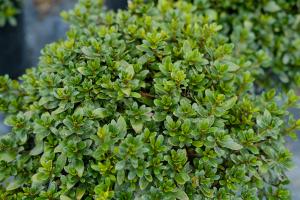Is it Better to Plant Small or Large Trees?
Planting trees is a great way to beautify your home or property and contribute to the environment. However, when it comes to choosing between planting small or large trees, many people are unsure which option is better. In this article, we'll explore the benefits and drawbacks of planting both small and large trees, so you can make an informed decision.
The Advantages of Planting Small Trees
Planting small trees has several benefits. For starters, they are easier to handle and plant. They also cost less than larger trees, making them a more budget-friendly option. In addition, small trees have a better chance of adapting to their new environment and thriving in the long run. Because they have a smaller root system, they require less water and nutrients to grow, which makes them more resilient and less likely to die due to diseases or pests.
Another advantage of planting small trees is that they grow faster than larger trees. Because they have less foliage and smaller trunks, they can allocate more resources towards growth rather than supporting the size of their canopy. This means that small trees will quickly catch up to larger trees in terms of size within a few years.
The Disadvantages of Planting Small Trees
Despite their numerous advantages, small trees also have some drawbacks. For starters, they don't provide as much shade or privacy as larger trees, which can be a significant factor if you're looking to create an outdoor living space or improve your home's energy efficiency. Small trees also have a shorter lifespan than their larger counterparts. While they may grow faster initially, they may not live as long or be as resilient in the long run.
The Advantages of Planting Large Trees
Planting large trees has several advantages. For starters, they offer immediate benefits such as shade and privacy. They also provide a significant visual impact, enhancing the curb appeal of your home or property. In addition, large trees are more durable and long-lasting than small trees. Once established, they require less maintenance and upkeep compared to small trees, making them an excellent option for people who want to invest in their landscaping for the long term.
Another advantage of planting large trees is that they can increase the value of your property. Studies have shown that homes with mature trees sell for more than homes without trees or with smaller trees. Additionally, large trees provide a range of environmental benefits, including reducing air pollution and erosion and providing habitats for birds and animals.
The Disadvantages of Planting Large Trees
Despite their many advantages, large trees also have some disadvantages. For starters, they cost more than small trees, and they can be challenging to handle and plant. In addition, they require more water and nutrients to grow, and they are more susceptible to diseases and pests. Large trees also take longer to establish their root systems, which means that they may require more maintenance and care in the beginning stages of their growth.
The Bottom Line
So, is it better to plant small or large trees? The answer depends on your specific needs and preferences. If you're looking for a budget-friendly option that will adapt well to its new environment and grow quickly, planting a small tree is a great choice. However, if you want immediate benefits such as shade and privacy, and you're willing to invest in your landscaping for the long term, planting a large tree is an excellent option. Ultimately, the most important thing is to choose a tree that is suitable for your climate and soil conditions and will provide the benefits you're looking for in the long run.

 how many times do yo...
how many times do yo... how many planted tre...
how many planted tre... how many pine trees ...
how many pine trees ... how many pecan trees...
how many pecan trees... how many plants comp...
how many plants comp... how many plants can ...
how many plants can ... how many plants and ...
how many plants and ... how many pepper plan...
how many pepper plan...































